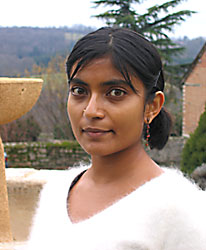 Three days before I was to leave for Sri Lanka to attend the 2011 Galle Literary Festival, I received news that the Paris-based NGO, Reporters Without Borders, had issued a call for a boycott of the festival, and that—among others—Arundhati Roy, Noam Chomsky, and Tariq Ali had all signed the boycott petition. “We ask you in the great tradition of solidarity that binds writers together everywhere, to stand with your brothers and sisters in Sri Lanka who are not allowed to speak out,” the petition read. “While mounting evidence of Sri Lanka’s war crimes is being shown around the world, journalists inside the country cannot talk about them or even visit the northern areas because they are afraid that they will disappear or be killed.”
Three days before I was to leave for Sri Lanka to attend the 2011 Galle Literary Festival, I received news that the Paris-based NGO, Reporters Without Borders, had issued a call for a boycott of the festival, and that—among others—Arundhati Roy, Noam Chomsky, and Tariq Ali had all signed the boycott petition. “We ask you in the great tradition of solidarity that binds writers together everywhere, to stand with your brothers and sisters in Sri Lanka who are not allowed to speak out,” the petition read. “While mounting evidence of Sri Lanka’s war crimes is being shown around the world, journalists inside the country cannot talk about them or even visit the northern areas because they are afraid that they will disappear or be killed.”
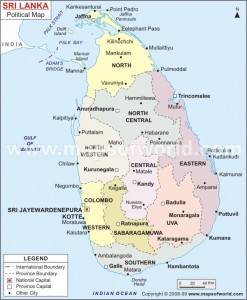
Image Credit: mapsofworld.com
My first reaction was mixed; while I am not a blind fan of Roy or Chomsky or Ali, I have in the past agreed with some of their concerns about—for example—U.S. foreign policy. And I do have strong feelings about the government of Sri Lanka, about the war that ended in 2010, about repressive governments and freedom of speech all over the world. By the time the war was reaching its horrifying climax, no reasonable person, whatever their cultural allegiances, supported the Tamil Tigers’ methods (or perhaps I should say that I do not consider reasonable those people who remained supportive of those methods until the end). But it should not take cultural allegiances—which I have aplenty, being Tamil myself, and having grown up in another country that blatantly discriminates against Tamils and other minorities—for anyone who has followed the history and progression of the conflict to know that neither side has been blameless.
Yet the Reporters Without Borders petition made little sense to me on the most basic level: shouldn’t a literary festival be the last thing one should boycott in a country with a poor record of press freedom and human rights? I could see an argument for boycotting investment, or perhaps even tourism, but a literary festival? Really? Why sabotage an opportunity for free speech when they are so rare?
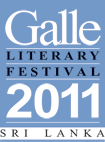
Image Credit: GLF web site
I decided on my own to ignore the boycott; then, early on the morning of the festival’s official opening, Shyam Selvadurai, this year’s curator and a writer I greatly admire, sent an email that confirmed my misgivings about the petition and strengthened my resolve to support the festival in any way I could. “I am a well-known Sri Lankan Tamil writer who has written in a very political way about the civil conflict in Sri Lanka,” Shyam wrote. “Why didn’t Reporters Without Borders think that my opinion needed to be sought? It feels, from my point of view, that they are guilty of the very same silencing they are fighting against.” He went on to say:
My own appointment to the position of Festival Curator embodies what the festival stands for. I am Tamil and the festival takes place in Galle, the deep Sinhala south, which has seen some of the worst violence committed against Tamils. I am, in addition, openly gay, and in fact was the first person to come out publicly in Sri Lanka. This, in a country where homosexuality is still illegal.
Shyam’s own identities aside, the program he put together deliberately included a BBC Forum on civil war—featuring, among other speakers, Chimamanda Adichie and the Sri Lankan human rights activist Sunila Abeysekara, an outspoken critic of her country’s government—and a “spotlight on Malaysia” in recognition of my country’s own struggles with ethnic tension and conflict. (I had been invited, along with my fellow Malaysian writers Tash Aw, Tan Twan Eng, Shamini Flint, Farish Noor, Tripat Narayanan, and Omar Musa, for precisely this reason.)
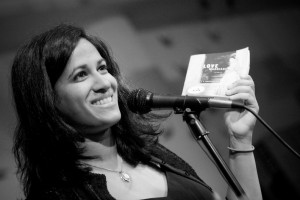
V.V. (Sugi) Ganeshananthan / photo credit: Preston Merchant
My friend V.V. (Sugi) Ganeshananthan has written a powerful, poetic critique of the boycott for the Millions; there’s nothing I can possibly add to her response, which made me want to cry and cheer simultaneously when I read it. What I can say is that I fell completely and unexpectedly in love with Sri Lanka, with its urban and seaside landscapes, its people, its food, the vestiges of its colonial past in architecture and culture. All this, all of it reminded me of Malaysia as I knew and loved her best, twenty-five or thirty years ago, the Malaysia of my early childhood, still unspoiled by malls and self-conscious consumerism. And the similarity was not just a figment of my imagination; my compatriots made the same observations. I’ve visited India twice, each time hoping to feel at home, to find familiar elements and faces and ways of talking or seeing the world, and while this has happened to a limited extent in south India, it was nothing like what I felt in Sri Lanka, that almost painful nostalgia, like stepping through some cosmic peephole into my own past. Even the Viceroy Special, the 75-year-old train the festival had chartered to transport participants from Colombo to Galle, felt familiar: the smell of the upholstery, the limp white sandwiches.
Sri Lankan food, too, seemed to have less in common with the austere vegetarian cuisine that dominates Tamil Nadu than with what I’d grown up eating in Malaysia: the spicy sambols, the abundance of fresh and dried seafood, the dodol made with coconut milk and palm sugar, the pittu and string hoppers that were a staple of my childhood thanks to the vendor who bicycled around our neighborhood at dusk. On our last night we had dinner at the Closenberg Hotel in Unawatuna, where every last detail—the dark wood of the furniture, the greying white paint that covered even the old round light switches, the geckos on the ceiling—recalled the Station Hotel in Ipoh, the old FMS Bar and Restaurant, the family house of my oldest aunt and uncle in the far north of Malaysia.
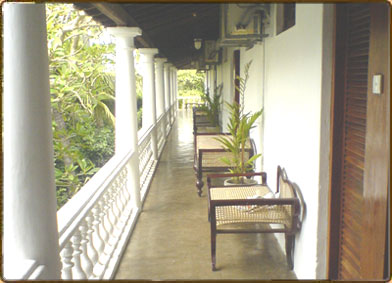
Courtesy Closenberg Hotel web site
Like Sugi, I had encounters that could only have happened at this festival, in Sri Lanka, to someone with my particular background and baggage, a unique confluence of circumstances I would have missed out on if I’d decided not to go. Not just the exchanges with other authors after their events or over rice and curry like my mother and aunts make them, but, for example: the aunty and uncle (the kind who are not related, to paraphrase Sugi) who briefly adopted Shamini Flint at the closing luncheon, upon learning that she was of Sri Lankan Tamil extraction, and mysteriously convinced the kitchen of the Jetwing Lighthouse to produce a plate of coconut pancakes (which were, incidentally, identical to a confection we Malaysians know by a Malay name) especially for her. “But I’m not Sri Lankan Tamil,” I had to confess when I joined them at their table and was pressed to partake of the pancakes, “I’m just a regular Indian Tamil.” “Never mind,” said aunty, “never mind. We are all Tamils just the same. You sit down and eat too.” Which of course would be what she would say; there is no other possible response in the aunty script.
As part of this year’s festival, Shyam Selvadurai had also started a program to bring in Tamil students from the north, who shared accommodation and meals with Sinhala students from the south. These students then attended sessions dealing with multiculturalism and civil conflict, including the round table on “Writing Malaysia” at which Twan Eng, Shamini, and I read and spoke about our work. “Your presence at the festival,” Shyam had written in his email to all this year’s participants, “will contribute to this broadening of young minds.” And while we believed him, because we believe in the power of literature to do exactly that, it never hit home quite so effectively as when small groups of shy Tamil students would approach me or Shamini to introduce themselves, to ask questions, or, really, just to sit and smile at us. I recognized these moments for what they were, having not so long ago sought them out myself: that recognition, that glow of, Oh, you’re just like me, and you’re a writer. So it can be done. Whatever the inherent limitations of that conclusion—because of course, being a writer takes a lot more than being just like anyone—and however unaware one is of those limitations, it still remains a necessary milestone for those of us who grow up in the shadow of the West, who even now do not look or talk or think like the people in most of the books we grow up reading, and who, for this and other reasons, think of being a writer as something reserved for them, the ones with the power, the lucky ones whose stories the whole world wants to hear.
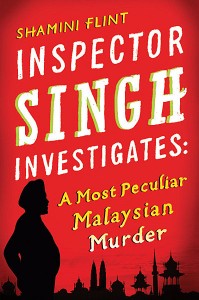
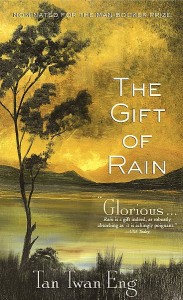
After our “Writing Malaysia” round table, I donated a copy of my novel to another initiative supported by the festival: the Books United Project, which collects book donations for the Jaffna Public Library. A major repository and powerful symbol of Tamil literary culture since the 1950s, the library was burned in 1981 by an organized mob that included police and government-sponsored paramilitary groups, in the spate of inter-ethnic violence that eventually led to the civil war. My donation was the tiniest of gestures, one copy of one novel that most Sri Lankans have never heard of, but it felt significant, particularly in light of the call for the boycott, and I was glad for chance to do it.
Traveling with my 20-month-old daughter, I didn’t manage to attend as many events as I would have liked, but among the most memorable ones I did attend were moderated conversations with Chimamanda Adichie and with Mohsin Hamid. Both writers impressed me with their honesty and insight on a subject close to my heart, the intersection of politics and fiction. I was sad to have to miss events by—among others—Lawrence Hill, Jung Chang, Judy Fong Bates, Ranjini Obeyesekere, Pauline Melville, Louis de Bernieres, William Fiennes, Sarah Dunant, and the fabulous British poet Daljit Nagra, whose first poetry collection, Look We Have Coming To Dover, is one of my favorite collections of recent years. 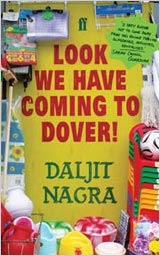 But if I couldn’t hear them on stage, I could and did sit with several of them in taxis and at meals, for leisurely chats about everything and nothing, which is always, in some ways, even better. The best thing about traveling with my daughter? Everyone, even a literary superstar, loves a baby, especially one who politely requests to view their belly button at lunch. Ah, babies, the great levelers. It’s difficult to dwell on status or hierarchies in their presence: my fondest memory of the lovely Pauline Melville is the analogy she made between the sound of my daughter’s mild distress and the cooing of doves.
But if I couldn’t hear them on stage, I could and did sit with several of them in taxis and at meals, for leisurely chats about everything and nothing, which is always, in some ways, even better. The best thing about traveling with my daughter? Everyone, even a literary superstar, loves a baby, especially one who politely requests to view their belly button at lunch. Ah, babies, the great levelers. It’s difficult to dwell on status or hierarchies in their presence: my fondest memory of the lovely Pauline Melville is the analogy she made between the sound of my daughter’s mild distress and the cooing of doves.
I won’t lie: I do think the atmosphere of the festival was somewhat dampened, at least initially, by the withdrawal of Damon Galgut in response to the call for a boycott and of Orhan Pamuk and Kiran Desai due to a misunderstanding about the former’s visa status. Certainly they were some of the biggest names, and some people must have attended the festival just to hear them. But I felt amply justified in my decision to attend after the brave, moving closing speech by Geoffrey Dobbs, the founder of the Galle Festival. We’re not going to let Reporters Without Borders or anyone else close us down, said Dobbs, and the irony was not lost on us: free speech must prevail in the end, against the NGO that claims to fight for press freedom.
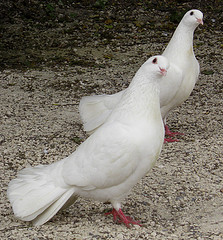
Doves credit: Flickr
Further Links and Resources
 Read the Guardian‘s coverage of the Galle Literary Festival.
Read the Guardian‘s coverage of the Galle Literary Festival.




